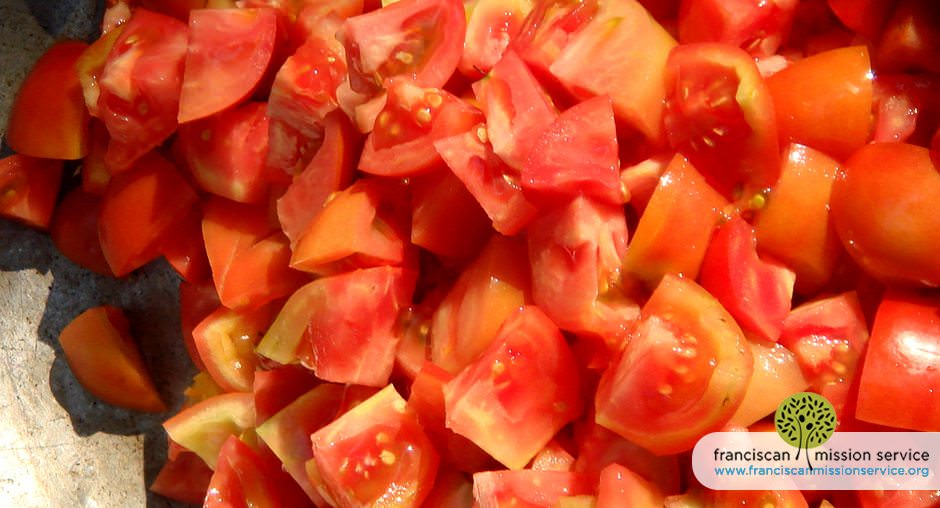Come to the Table: Patience

Editor’s note: Missioner Maggie Van Roekel continues a three-part blog series on how kitchens and cooking have become important to her on mission. In part two, Maggie shares a time she learned patience in the UAC campus kitchen in Carmen Pampa, Bolivia.
Another kitchen that has made an impact on my experience on mission was the campus kitchen in Carmen Pampa. During my second semester at the UAC in Carmen Pampa, I found myself with quite a bit of extra time on my hands. This left me free to enter into a few more ministry spaces outside of the classroom.
As many of you may know, I really enjoy cooking, a fact I never really knew about myself until I began life on mission. I wouldn’t consider myself a great cook by any means, but I find peace in chopping and I love the creativity and resourcefulness often required.
Because of the joy I find in cooking, I reached out to the women who worked in the campus kitchen to see if I could lend an extra pair of hands.
The first day I showed up, I was happy to jump right into the thick of things.
Something I should explain beforehand is that many cooks I have met in Bolivia chop veggies without using a cutting board, a tool on which I have always relied.
So, as you can imagine, when Dona Delia assigned me to a big tub of tomatoes to finely chop for a salad, I may have had a moment or two of panic.
Sitting on a small crate with a heaping pile of red tomatoes piled in front of me, I picked up the knife and began to hack away.
After struggling for a few minutes, making very little progress, the other woman who worked in the kitchens, Dona Candi, cleared her throat and waved for my attention. Dona Candi speaks mostly Aymara, the most predominant indigenous language in the Bolivian department of La Paz.
With a soft smile, she motioned for me to hand her a tomato and my knife. Holding the tomato in one hand so that I could clearly see, she began to slowly cut the tomato in a grid-like pattern. She then slid the knife through the tomato so that the perfect little cubes cascaded into the bucket.
With another gentle smile and a nod, she handed the knife back to me and gestured for me to try. With a little awkward fumbling, I made my best attempt to mimic what she had done.
Some uneven pieces of tomato dropped into the bucket. She shrugged and nodded. Keep trying.
While my chopping skills may have developed into, well, less-bad, I never really got good at dicing tomatoes. Despite the fact that it would have probably been faster for someone else to chop, I was continuously assigned the job.
The compassion and patience which Dona Candi showed toward me became a good reminder while working with students in the English classroom and in my daily encounters since then.
Reflection Question: Who is someone who has modeled compassion and patience for you during a trying time in your life?
Tagged in:

